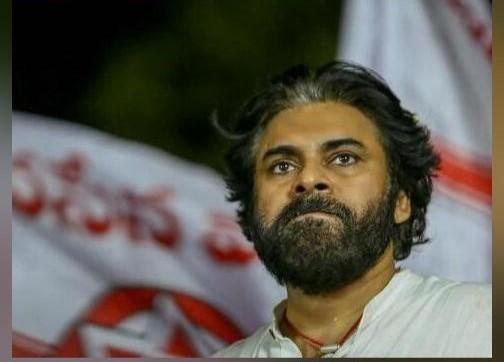
Like PM, Kalyan switches to English while speaking on J&K attack
In a remarkable display of linguistic flexibility, Andhra Pradesh Deputy Chief Minister Pawan Kalyan surprised many by switching from Telugu to English during a mid-speech as he addressed the recent terror attack in Jammu and Kashmir’s Pahalgam. This unexpected move has sparked a wave of interest and curiosity among the public, with many drawing parallels with Prime Minister Narendra Modi’s own linguistic shift earlier this week.
As Pawan Kalyan began his speech, he spoke in Telugu, condemning the terror attack and expressing condolences to the families of the victims. However, midway through his address, he suddenly switched to English, using phrases like “The attack has been one of the darkest days in entire country” to convey his strong condemnation of the incident.
This sudden shift to English has left many wondering about the significance of this move. Some have interpreted it as a deliberate attempt to send a strong message of India’s fight against terrorism, much like Prime Minister Narendra Modi did earlier this week. Modi, while addressing a gathering in Gujarat, switched from Hindi to English to emphasize India’s resolve to combat terrorism and extremism.
The attack in Pahalgam, which left several people dead and many more injured, has sent shockwaves across the nation. The incident has raised concerns about the growing threat of terrorism in Jammu and Kashmir and the need for sustained efforts to combat it.
Pawan Kalyan’s decision to switch to English during his speech, therefore, can be seen as a bold statement of India’s determination to fight against terrorism, regardless of linguistic or regional barriers. By using English, he was able to convey his message to a wider audience, transcending language and regional boundaries.
This development has also sparked a debate about the role of language in politics and public discourse. In an era where social media and global communication have made it easier to connect with people across the world, the use of English as a lingua franca has become increasingly common. Politicians, in particular, are under pressure to adapt to this changing landscape and communicate effectively with a diverse range of audiences.
Pawan Kalyan’s decision to switch to English during his speech can be seen as a reflection of this trend. By using English, he was able to connect with a wider audience, including those who may not be familiar with Telugu or other regional languages. This move has also sent a strong message about the importance of linguistic flexibility in contemporary politics.
In conclusion, Pawan Kalyan’s decision to switch to English during his speech on the Jammu and Kashmir attack has sparked a wave of interest and curiosity among the public. This move has been interpreted as a deliberate attempt to send a strong message of India’s fight against terrorism, much like Prime Minister Narendra Modi did earlier this week. As we navigate the complex landscape of modern politics, linguistic flexibility will continue to play an important role in shaping the way we communicate and connect with each other.
Source: https://youtu.be/hl6_hZOnkFA






